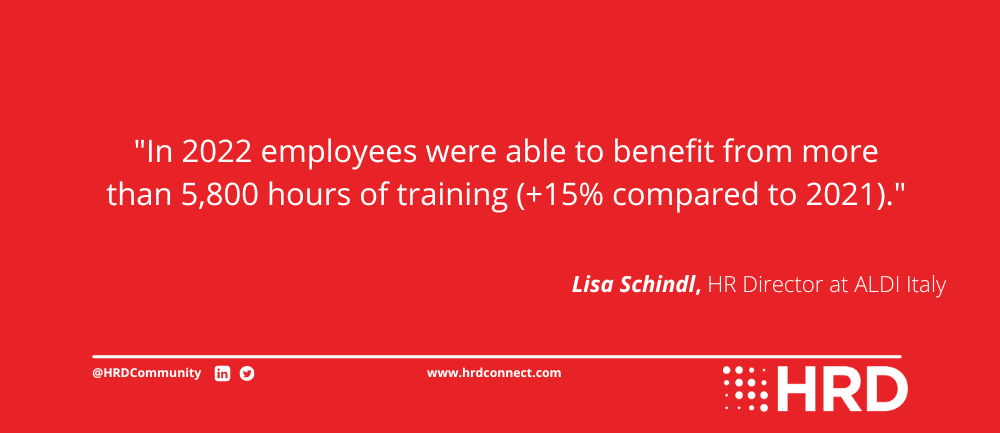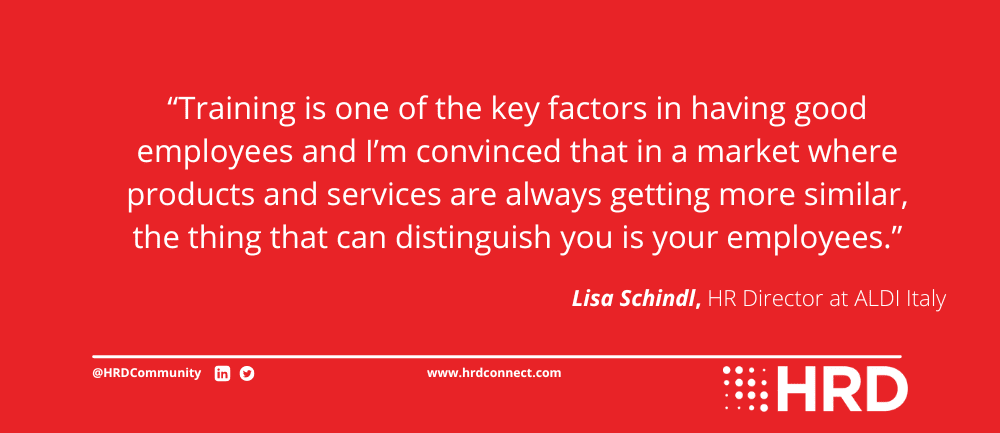-
Provided by

- Date published: Jan 12, 2023
- Categories
As any CEO or senior executive will attest, one of the most important factors in dictating whether overall revenue growth targets or key strategic objectives are successfully achieved, is whether the wider workforce have both the skills and motivation to deliver.
From having to find new ways of working as a result of the Covid-19 restrictions put in place, to having to contend with the challenging economic environment that we currently find ourselves in, companies have been forced to rely on their employee’s abilities to adapt and evolve.
According to research from the global consultancy McKinsey, the pressure this places on companies across the world, is only expected to grow, with 87% of companies reporting that they are either already facing skills shortages in their workforce or will do within the next few years.
This need for companies to build their skills and competencies internally is further strengthened by the findings of a survey by Gartner, which showed that 80% of the workforce, 92% of managers and 77% of senior leaders already felt poorly prepared for the future.
And at the same time as companies are increasingly realising the need to upskill and develop their workforce, those within that workforce are increasingly motivated by opportunities to improve their skill sets.
This was made clear in a recent recent report by HRD Connect, which found that increasing employee satisfaction, boosting engagement and productivity, and giving employees a sense of purpose were the three most important factors in embedding professional development at the heart of a business.
But while this great realisation across the corporate world of the importance of skills and the value of workplace training is a welcome development, its long-term value will depend on what action is taken.
For Lisa Schindl, HR Director at ALDI Italy, making the most of employee training and skills development is not just a strategic imperative, but a financial one as well.

This is because in Italy, every company is required to contribute a fixed share of its gross payroll into an Interprofessional Fund, that can then be used by the company itself to pay for training of its staff, or else is pooled into a national training fund.
“Every month, we pay 0.3% of each employee’s salary into the fund,” she explains. “So every year, we plan our annual development path, which could be for senior management or for a specific department, and then we decide which training will be financed by the fund and which will be paid for by the company out of additional funds.”
Explaining that the company operates its IF fund through a specialist intermediary which manages the administrative aspects of the scheme, Schindl stresses that any proposed training must be submitted with a very detailed plan that includes all the details down to the individual names and number of sessions.
“If all the requirements are met, we get the money back from the fund, but they are strict and obviously check the attendance list to make sure that a defined percentage of planned participants attended, because if they did not, then we won’t get that money back.”
The rigorous approach to both thinking through which training will be provided and ensuring that it is delivered is something that Schindl clearly sees the benefits of, while the ‘use it or lose it’ element drives her and her team to extract maximum value from it since it began.
“Every year we set aside the amount of money, according to our number of employees, because if we don’t use these amounts within two years, we lose the possibility for them to be used by our company alone, because then they would go into the public part of the funds,” she says.
“But so far, we have not lost one single penny through the scheme for each year that we have been using it. But we don’t stop there. ALDI invests a lot more financial resources outside the fund to provide further training when and where needed. In 2022 employees were able to benefit from more than 5,800 hours of training (+15% compared to 2021)”.

Boosting skills and driving development
For ALDI Italy, the financial benefits of extracting full value from the fund since it came into being, has been welcomed, but far greater than that has been the benefits to its staff from the training that it has provided.
Initially, it proved particularly useful in financing Italian language courses for the original staff at ALDI Italy who predominantly spoke German, having transferred from the parent companies home base.
However, as its operations in the country have grown, both in terms of stores where it now has more than 140 and staff headcount of almost 3.000, it has been used to fund more specialised training, such as for its buying team.
“We fund specific programmes for certain departments, so in 2021 we offered a completely customised negotiation training scheme for our national buying service department,” says Schindl. “This really helped us with the daily business activities of negotiating with suppliers, but it also supported the development of newly-promoted employees.”
For this scheme, participants were put through an intensive and very detailed session with two specialist negotiation trainers where they implemented a range of different negotiation strategies which was then followed by a second session online two months later. Crucially, each participant was also given individual coaching support which could be used for a year, which was particularly valuable to the newly-promoted members of the team.
In addition to providing specific schemes for individual departments, Schindl and her team at ALDI Italy have also used the Interprofessional Fund to support business-wide training that covers specific areas or topics of focus for each year. Previous years have seen this used to train the full office workforce on organisational wellbeing, with training provided on things such as stress reduction.
“In the next two years, the focus for our training programme is going to be diversity and inclusion, which means that we will be training every single person in the company, from the top-down, on that area, and we will definitely also use fund money for this sort of training.”
Other types of training that have been provided via the fund have included public speaking and team management, whereas additional training outside the fund was offered for supporting staff on parenting issues related to work, and teaching memory techniques to aid information retention.
Building loyalty among staff and getting senior buy-in
For Schindl, who has herself recently taken part in a training programme on time management and enjoyed the benefits, the benefits to the company of providing such a comprehensive programme of training and skills development, go beyond just building competencies. In her time overseeing the HR function in Italy, she has come to see it as a key factor in overall employee satisfaction, particularly in such a competitive sector.
“Training is one of the key factors in having good employees and I’m convinced that in a market where products and services are always getting more similar, the thing that can distinguish you is your employees,” she says.
“If you have the best employees you will be a major player in your market, and having the best employees implies training them as much as you can, because that not only makes them a better employee but also makes them feel a bigger part of the company and builds loyalty.”
Having worked in Austria prior to moving to Italy, she says this is particularly the case in Italy, where she has found that employees are particularly excited to take advantage of training programmes.
Furthermore, the nature of the scheme and the possibility to use the funds has also enabled her to drive greater buy-in from the senior team, who might otherwise be weighing up the use of funds against alternative options.
“If we don’t use it, we lose it, so all decision makers are open to new ideas, to ensure we make the most of it,” she says. “So if I tell them we could do useful extra training and we don’t have extra costs for it because we can use the fund, it is more likely we get approval for proceeding.”

_________
This is a benefit that she is keen to capitalise on going forward and in particular to take advantage of the new and exciting ways in which training is now being provided. Having recently attended an HR forum which showcased a range of providers, new trends such as gamification and interactive online training are among the new methods she is keen to consider.
“There are always new trends and new ways of delivering training and skills development. Gamification is a big one at the moment that is growing, and together with our training partners, we have to be able to adapt to new forms of training.”
“When I started at this company it was just training in presence, but now we’re using interactive training, online training tools such as an online whiteboard, and gamification, so we’re in a whole new world right now.”
From providing a key funding resource for training to driving buy-in from senior management to building loyalty within the workforce, the Interprofessional Fund has delivered a range of benefits to Schindl, her team, and ALDI Italy as a whole. And while it is a scheme only available in Italy, it something that she feels could be used more widely to incentivise greater levels of training.
Reflecting on it, Schindl concludes: “I think it’s a huge thing and something that more countries should consider offering, so instead of paying more pay-related taxes, enable companies to spend more developing employees and building a stronger workforce.”
Which is no doubt something that other HR leaders, many of whom are faced with the need to close skills gaps within their workforces, would wholeheartedly agree.

